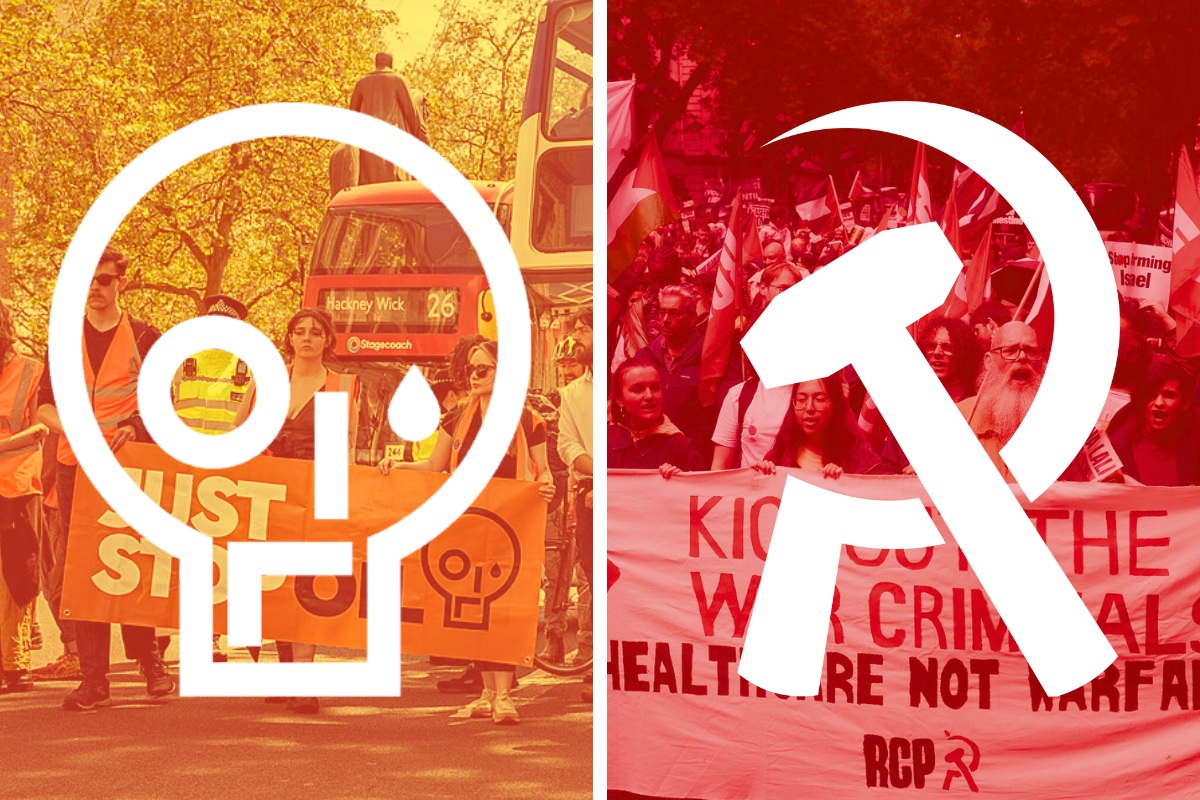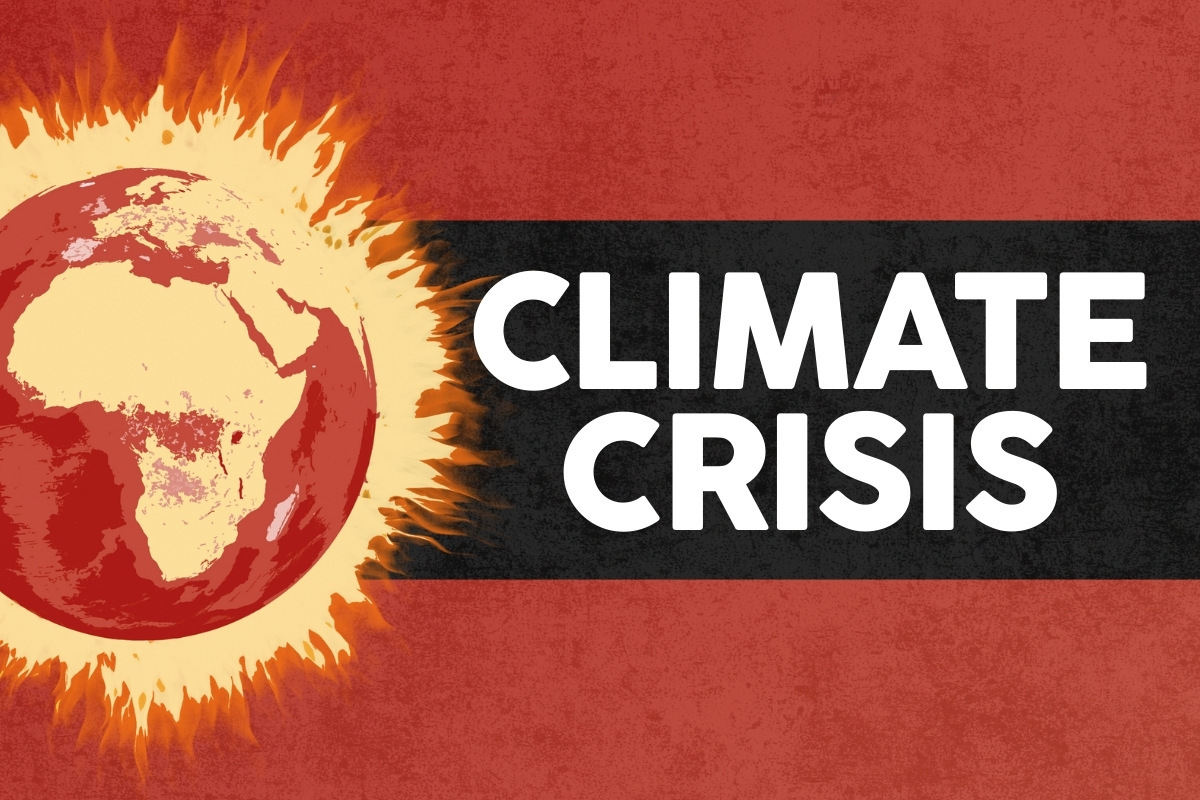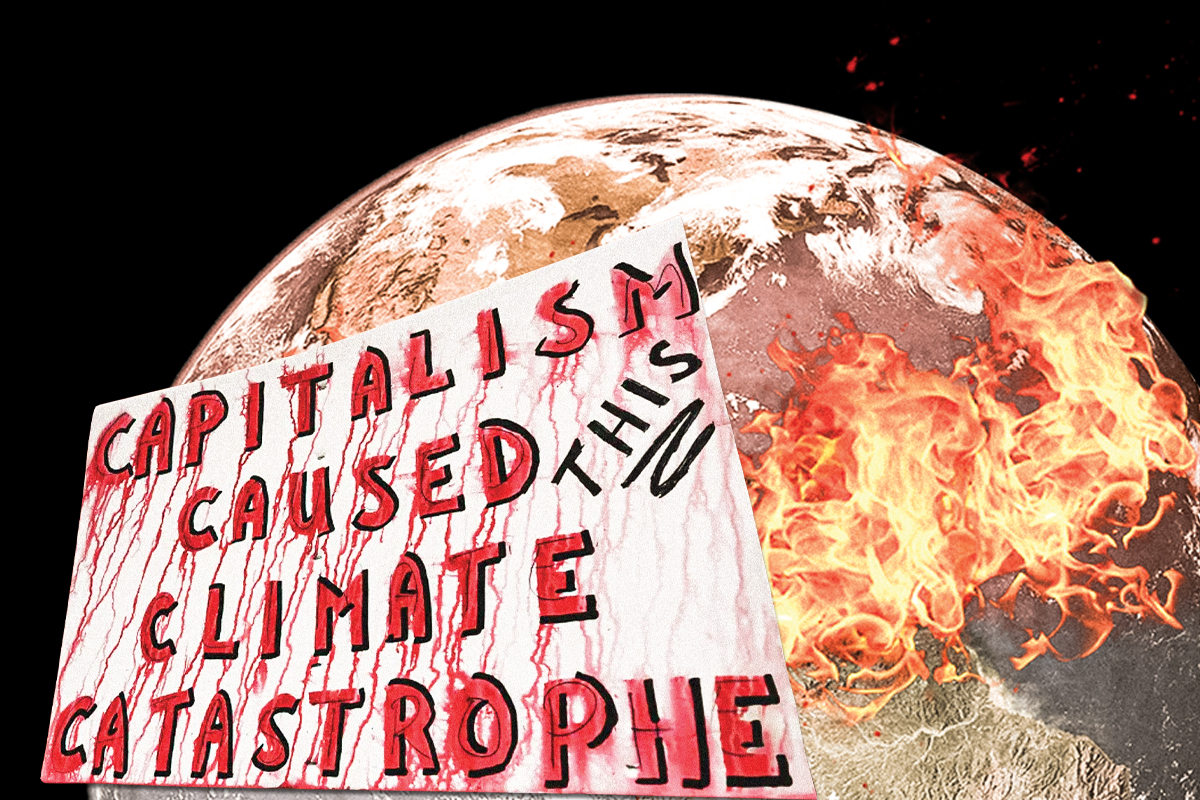A recent scientific report has rung yet another alarm bell about the environmental catastrophe that is unfolding before our eyes. Capitalism is killing the planet. We need revolutionary change, not climate change.
Many will hail 2020 as the year a long-predicted pandemic finally emerged rampant, exposing millions of people to needless suffering and death. But whilst the world has focused on fighting the virus, a much larger and existential threat continues to loom.
Last year was one of the three warmest ever on record. Consequently, 2020 began with more than 46 million acres being scorched in the Australian wildfires. These were estimated to have affected over three billion animals in what the WWF called the “worst wildlife disaster in modern history”.
Such events are not the exception of a ‘bad year’, but rather reflect a grim reality which will rapidly become the norm – unless immediate action is taken.
Grave warnings
 The stark reality of ecological and climate destruction has been echoed in a recent report entitled Underestimating the Challenges of Avoiding a Ghastly Future. In this, a group of 17 international scientists provide examples of the catastrophe already facing the world’s ecosystems.
The stark reality of ecological and climate destruction has been echoed in a recent report entitled Underestimating the Challenges of Avoiding a Ghastly Future. In this, a group of 17 international scientists provide examples of the catastrophe already facing the world’s ecosystems.
For example, the report’s authors specify that live coral cover on reefs has halved in less than 200 years; and that more than two-thirds of the oceans have been compromised to some extent by human activities.
Perhaps most damning of all, the scientists say, “one million species are threatened with extinction in the near future out of an estimated 7–10 million eukaryotic species on the planet”.
To avoid the prospects of “mass extinction, declining health and climate-disruption upheavals”, they call for the scientific community to avoid ‘sugar coating’ the overwhelming challenges ahead.
Such grave warnings have been received loud and clear by many. An estimated six million students and young workers participated in the 2019 ‘Fridays for Future’ global climate strike. But under capitalism, the dire needs of the people and planet – and the demands for immediate action – fall on deaf ears.
As the report states, whilst suggested solutions are abound, “the current scale of their implementation does not match the relentless progression of biodiversity loss”.
Profits over planet
The inertia of the politicians is not due to ignorance or miseducation.
As the report suggests, the capitalists and their representatives have ample access to facts and figures, as demonstrated by IPCC reports dating back to 1990. Establishment politicians may recognise the gravity of the situation, but they are not persuaded by moral arguments. Alas, their primary purpose is to maximise profits for the capitalist class, at the expense of everyone (and everything) else.
Indeed, technologies such as renewable energy – which could potentially provide an abundance of green, near-zero-cost electricity – ultimately clash with the profit motive and the market system. For example, state-subsidised investment into renewable energy supplies has crippled profit-driven international electricity markets.
So while the report calls for “fundamental changes to global capitalism”, along with “strict regulation of markets”, ultimately the ‘invisible hand’ of the market cannot solve the problem – it is the problem.
Neo-Malthusianism
Fundamentally, the report correctly recognises that the crisis cannot be solved by individual actions alone. Co-writer Professor Daniel Blumstein concludes that “we need big systematic changes and fast”.
Indeed, whilst being personally conscious about the environment is positive, only a fundamental, socialist transformation of society can ensure a real, lasting change.
Yet contradictorily, the report supports reactionary Malthusian ideology by emphasising the “impact of population growth” on global insecurity and social ills.
Co-writer Paul Ehrlich, author of The Population Bomb (1968), has gone so far as to say that “growthmania is the fatal disease of civilisation”. In other words, it is individual actions – so-called ‘overconsumption’ and ‘overpopulation’ – that is to blame for this crisis.
As Marxists, we know that the earth’s population has increased alongside the productivity of labour, enabling the potential of the planet’s finite resources to sustain a greater number of people. But utilisation of these resources should not necessarily involve environmental destruction – if production were rationally planned in order to utilise renewable energy and eliminate waste.
For example, it is estimated that we produce enough food to feed 10 billion people. However, 100,000 tonnes of unsold but edible food from the UK’s retail sector is wasted annually, so as to uphold market prices. Such irrationality is a result of capitalism’s inherent contradictions – the fact that production is for private profit, and not for society’s need.
A massive combined 18 million tonnes of food is thrown away in the UK each year. We must do more to tackle food waste.
Throwing away or destroying unsold food that is edible is so wasteful when food banks and charities are in such great need of food donations.
— Brilant Krasniqi SDP (@brilantbk) January 9, 2021
In fact, the richest 1% globally are responsible for 175 times the carbon emissions of someone in the poorest 10%. The ‘solutions’ of Malthusianism therefore clearly fall flat. With billions in the world suffering from hunger and poverty, it is clear that most people need to consume more – not less!
Rational plan
What we need is not cuts to the population, or to the living standards of ordinary households. There are enough resources already for every person to live a comfortable and decent life. But commodities are not produced or distributed in a rational way, with protection of the environment in mind. All that matters to the capitalist class is profit.
We need to plan – rationally and democratically – how we utilise the planet’s resources, and what technologies to develop. But you cannot plan what you do not control; and you do not control what you do not own.
The question of ecological destruction, therefore, is a question of who owns the means of production. Under capitalism, it is not those most affected by the climate crisis who are responsible for this disaster, but the 1% who are profiteering at the expense of the rest of us.
Whilst highlighting the seriousness of the problem, then, this latest report fails to point the finger at the perpetrator for this crisis. Hence, it also fails to offer genuine solutions.
Capitalism is killing the planet. The answer is therefore clear: we need to bring the key levers of the economy under common ownership and democratic workers’ control, as part of a socialist plan of production. Only then can we bring about a sustainable society, where the needs of humanity are in harmony – not in conflict – with the needs of nature.






